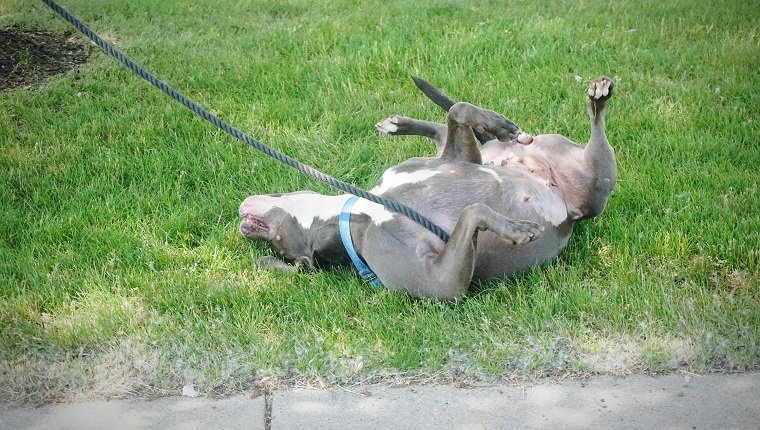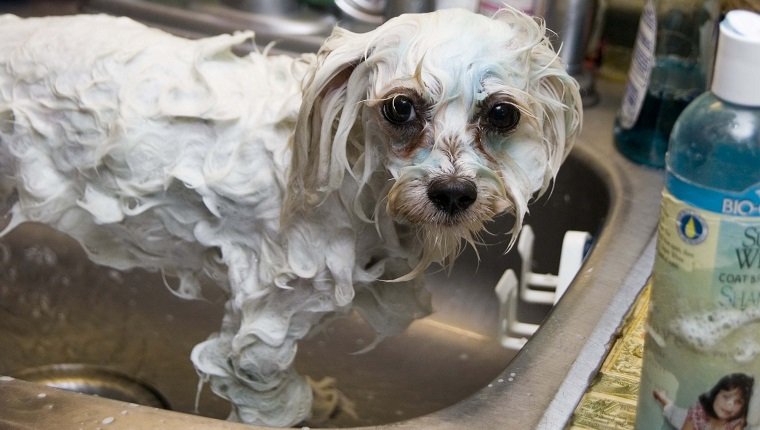Pruritus in dogs is simply the feeling of itchiness that makes a dog want to scratch, chew, lick, or rub their hair and skin. It’s common with skin disorders, parasitic infections, skin allergies, tick and flea infestations, and several other conditions.
Even scratching at an itch, itself, can add to inflammation and pruritus in dogs. Itching can be mild and have little effect on dogs’ health, or it can be severe. Further scratching and chewing can lead to hair loss, injuries, and pain.
If your dog is showing signs of pruritus and constantly trying to relieve itches, you must consult your veterinarian so they can find the cause and prescribe treatment.
Here’s what you should know about the symptoms, causes, and treatments for pruritus in dogs.
Symptoms Of Pruritus In Dogs

Pruritus is a common symptom of several skin conditions in dogs. Most dogs have minor itches that they can relieve by scratching or chewing, so long as the irritant is removed.
If the source of irritation or inflammation remains, it’s likely that some or all of the following symptoms of pruritus will appear:
- Scratching
- Licking
- Chewing or biting
- Rubbing against surfaces
- Rolling on the ground or floor
- Injury at the site of the itch
- Inflammation, swelling, or redness
- Skin infection
- Signs of pain or discomfort (vocalization, wincing, protecting certain areas of the body, etc.)
- Alopecia (hair loss)
Causes Of Pruritus In Dogs

Skin disease is one of the most common causes of pruritus in dogs, but there are several other conditions that can lead to persistent itchiness. A vet can run tests and examine the most affected sites on the skin to find the cause.
Here are some possible causes of pruritus in dogs.
- Flea or tick infestation
- Other parasites such as scabies or lice
- Seasonal allergies
- Food allergies
- Dry skin
- Contact dermatitis
- Mange
- Bacterial infections
- Injury, sometimes self-inflicted from trying to relieve itchiness from another condition
- Immune disorders
Treatments For Pruritus In Dogs

Treatment for pruritus in dogs depends on the cause, but the main goals are to reduce itching and remove the source of irritation from the skin.
Some dogs are put in an Elizabethan collar to prevent them from chewing or scratching at the site of itchiness until the area heals.
Antihistamines can often treat seasonal allergies and some forms of contact dermatitis. Dry skin may be treated with fatty acid supplements. If the cause of the itchiness is a food allergy, a vet may prescribe changes in diet.
Flea infestations can be resolved with medications and special shampoos, along with preventative medication administered monthly or at various times throughout the year.
Many dog parents opt for natural flea treatments to avoid side effects of such medications. Tick infestations may also be prevented with medication or by natural means.
Vets usually treat bacterial infections with antibiotics, and they may treat immune disorders with immunosuppressant drugs and other forms of therapy.
If you see the symptoms in your dog, then your vet will be able to advise you on the proper treatment to relieve the itchiness.
Has your dog ever shown signs of pruritus? What was the cause, and how did you treat it? Let us know in the comments below!





